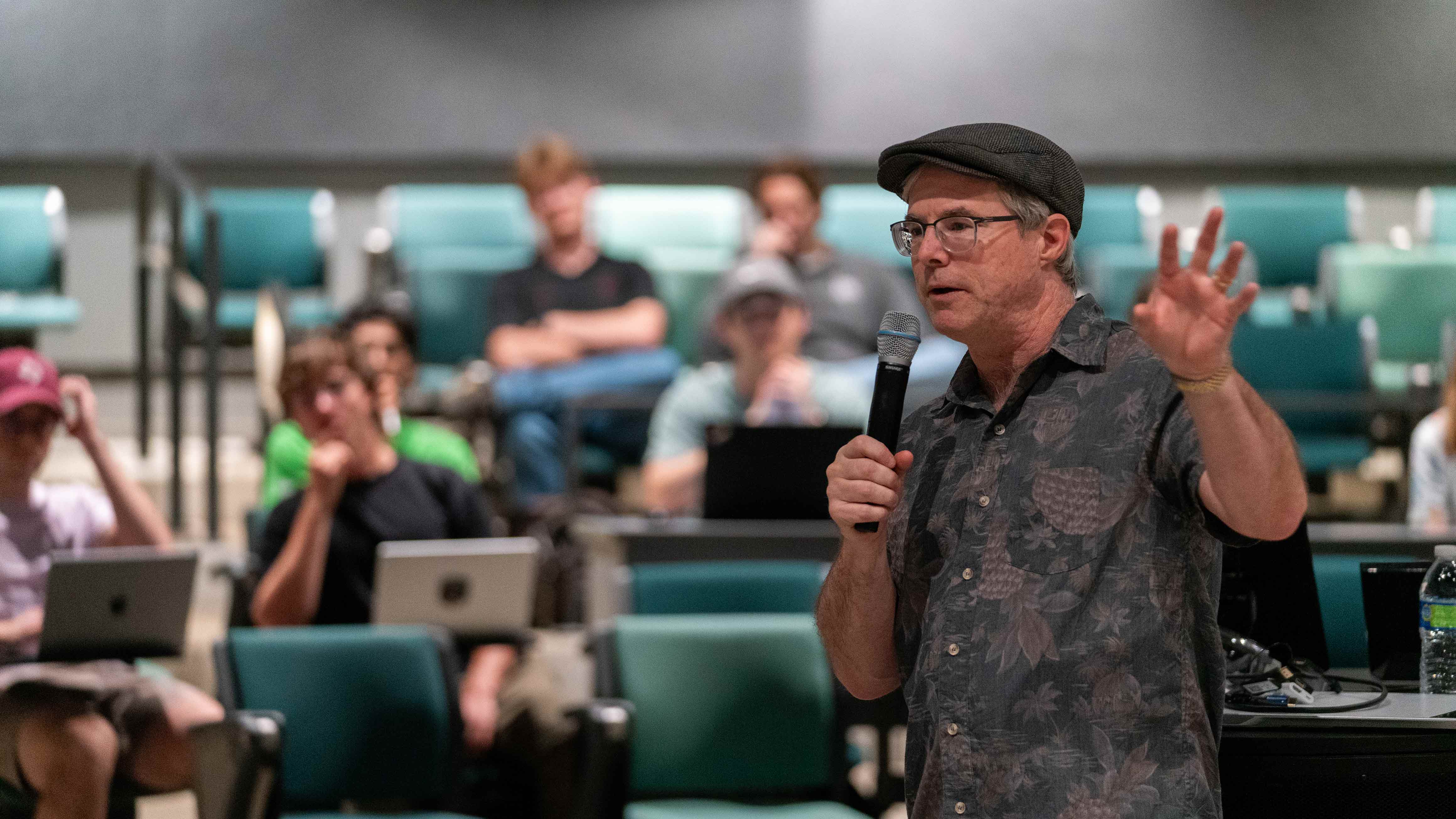
Science fiction author Andy Weir spoke with Texas A&M students, faculty and staff ahead of the National Academy of Engineering’s Regional Meeting and Symposium, sharing insights into his background, writing, and inspirations.
Growing up with a physicist father and an electrical engineering mother, Andy Weir’s passion for science and technology comes as no surprise. He remembers reading stories from his father’s large bookcase full of science fiction novels, sparking a love for the genre at an early age.
Weir was particularly inspired by hard science fiction novels, or those which do their best to maintain scientific accuracy. In Weir’s stories, any technology or science discussed has some root in reality. This introduces readers to scientific phenomena they may have been unfamiliar with.
“Education can be entertaining,” said Weir.
Weir pointed out that his ultimate goal when writing is not to educate readers on science but to entertain them. Often, there is an accidental overlap between these two. Fortunately for Weir and his readers, learning new things can be fun.
Before the success of his first novel The Martian, Weir worked as a software engineer. A self-proclaimed space nerd, Weir spends a great deal of his free time thinking about real-world scientific problems that fascinate him, and developing his own solutions. Eventually, these solutions become the basis of his stories.
For example, before writing The Martian, Weir recalls coming up with a plan to get humans to Mars. After thinking of the many problems these humans would face and possible solutions, Weir had the framework for a novel.
While Weir turns to the page to explore scientific solutions, researchers at Texas A&M University also find inspiration from scientific problems. With the focus on space engineering at Texas A&M, researchers are working toward a world in which Weir’s futures may be more reality than science fiction.